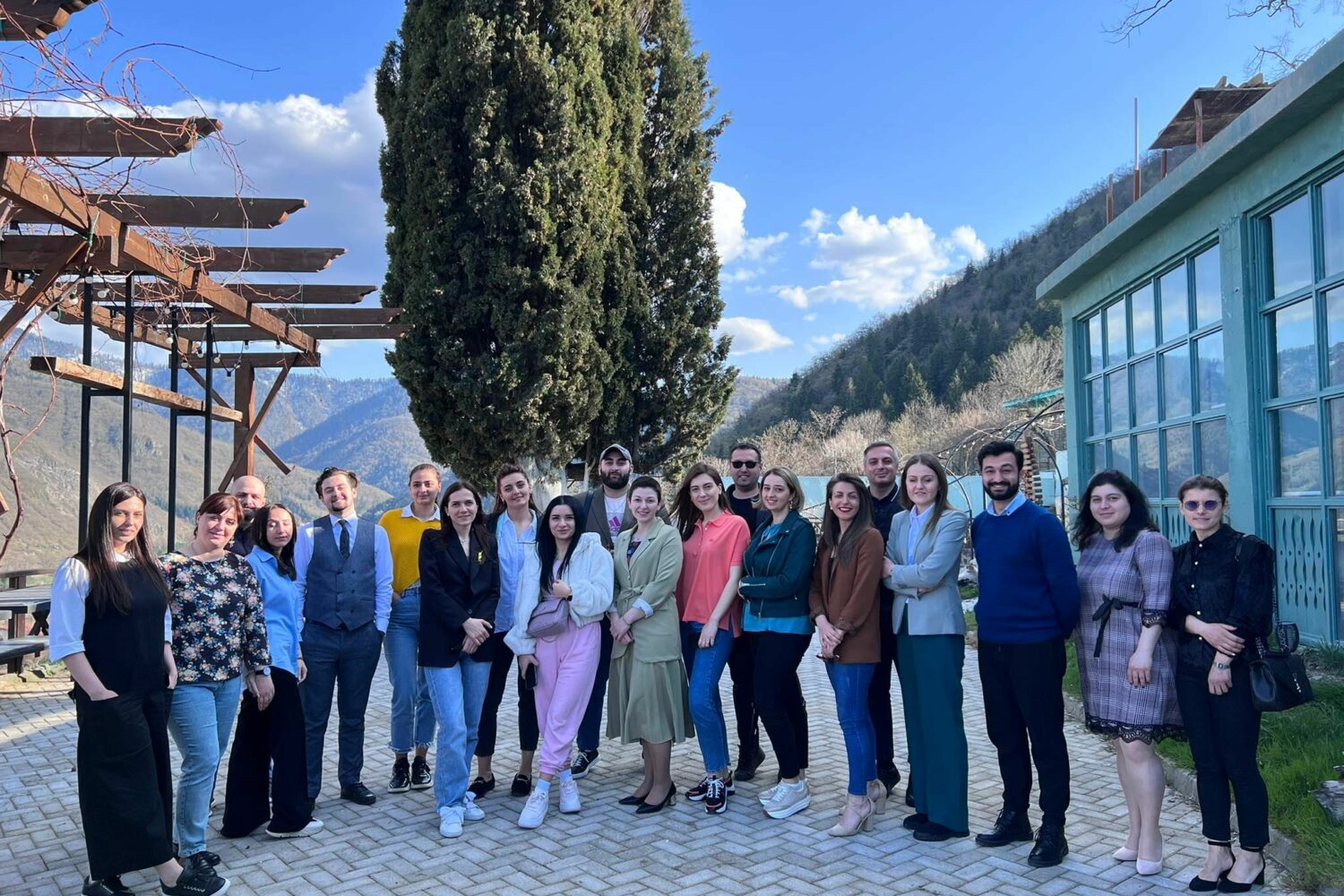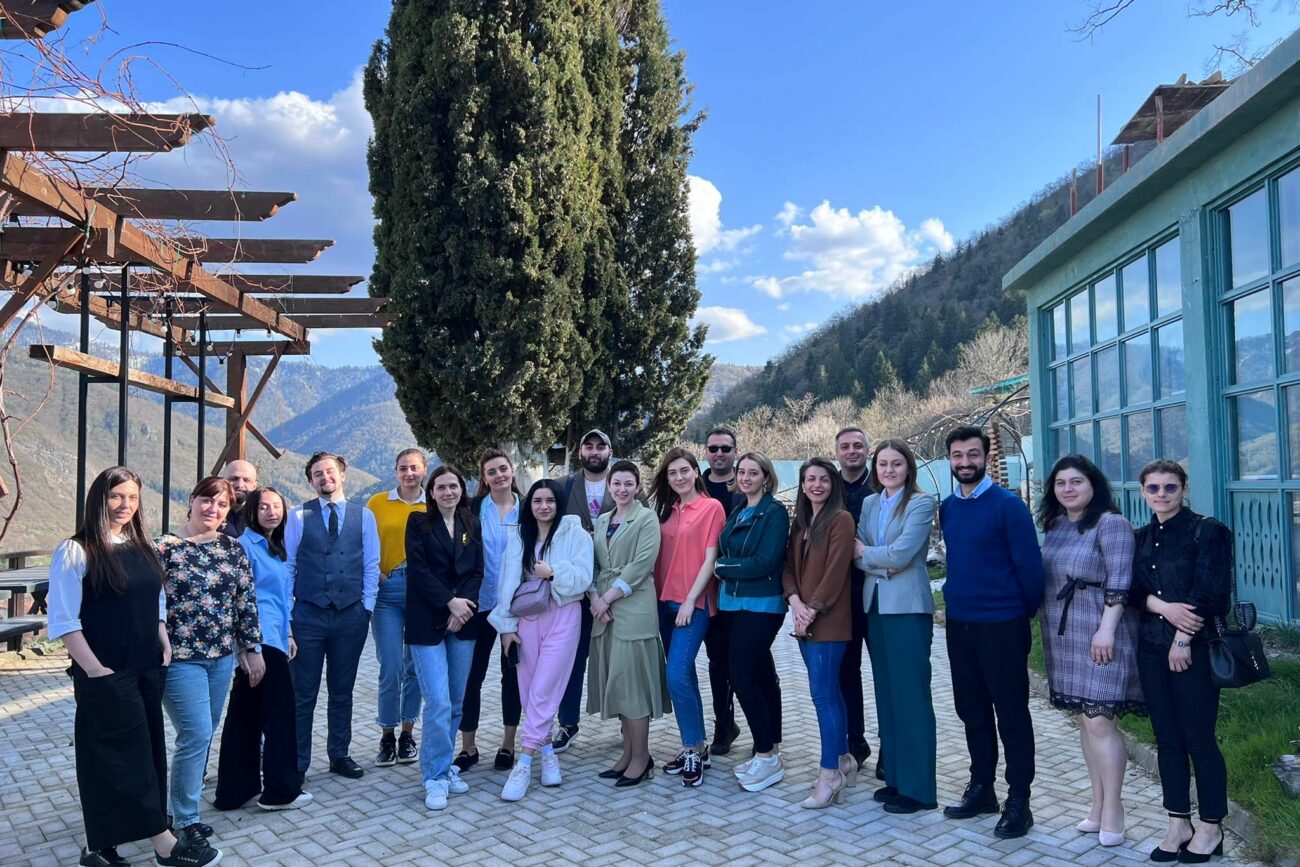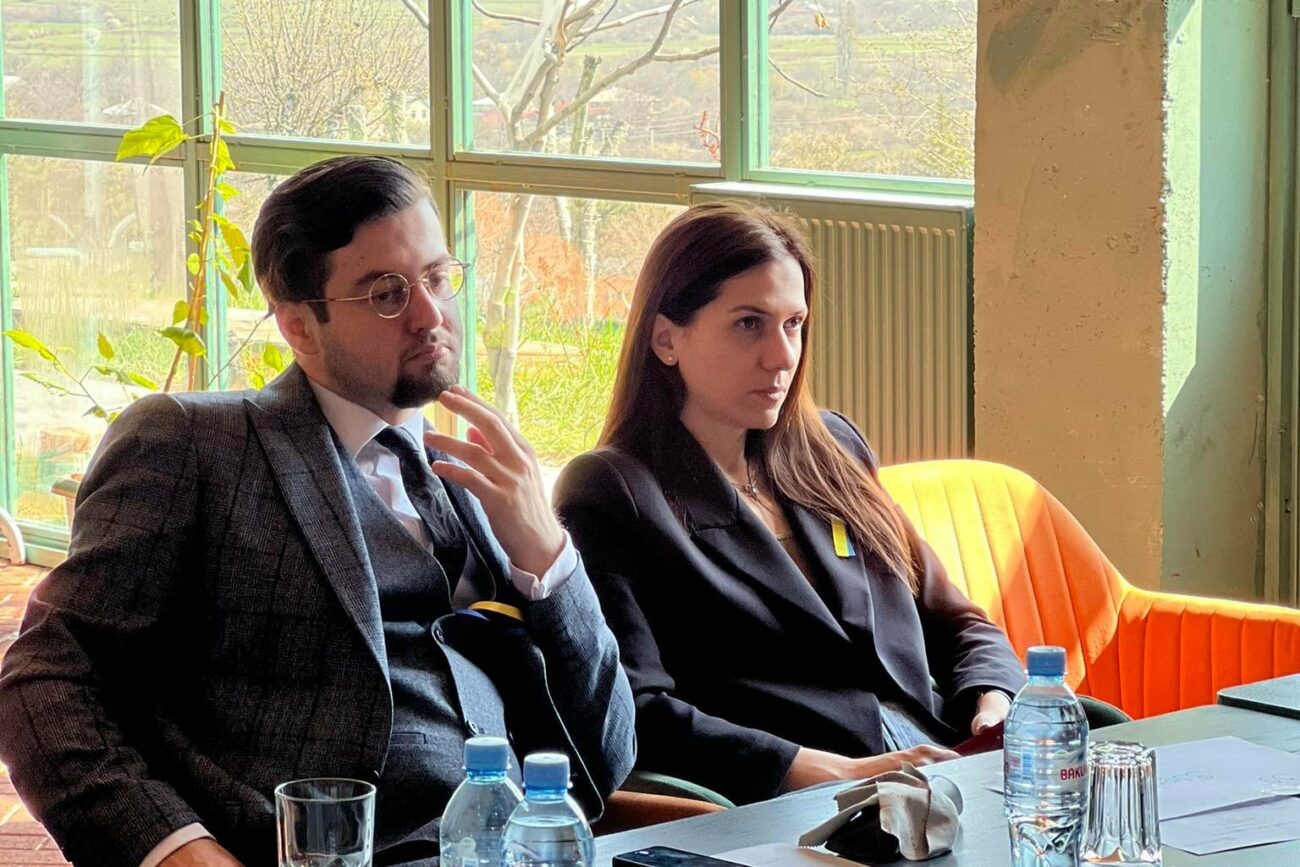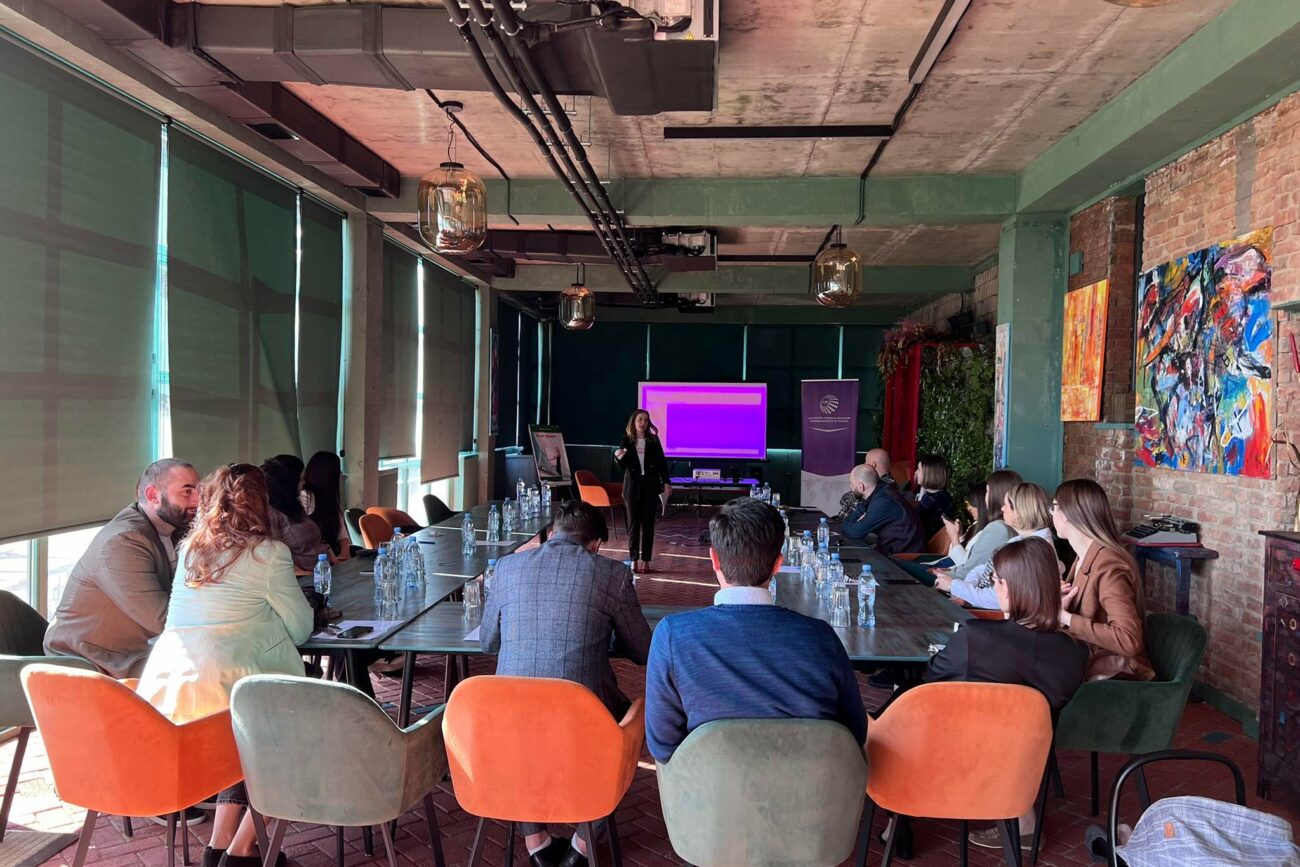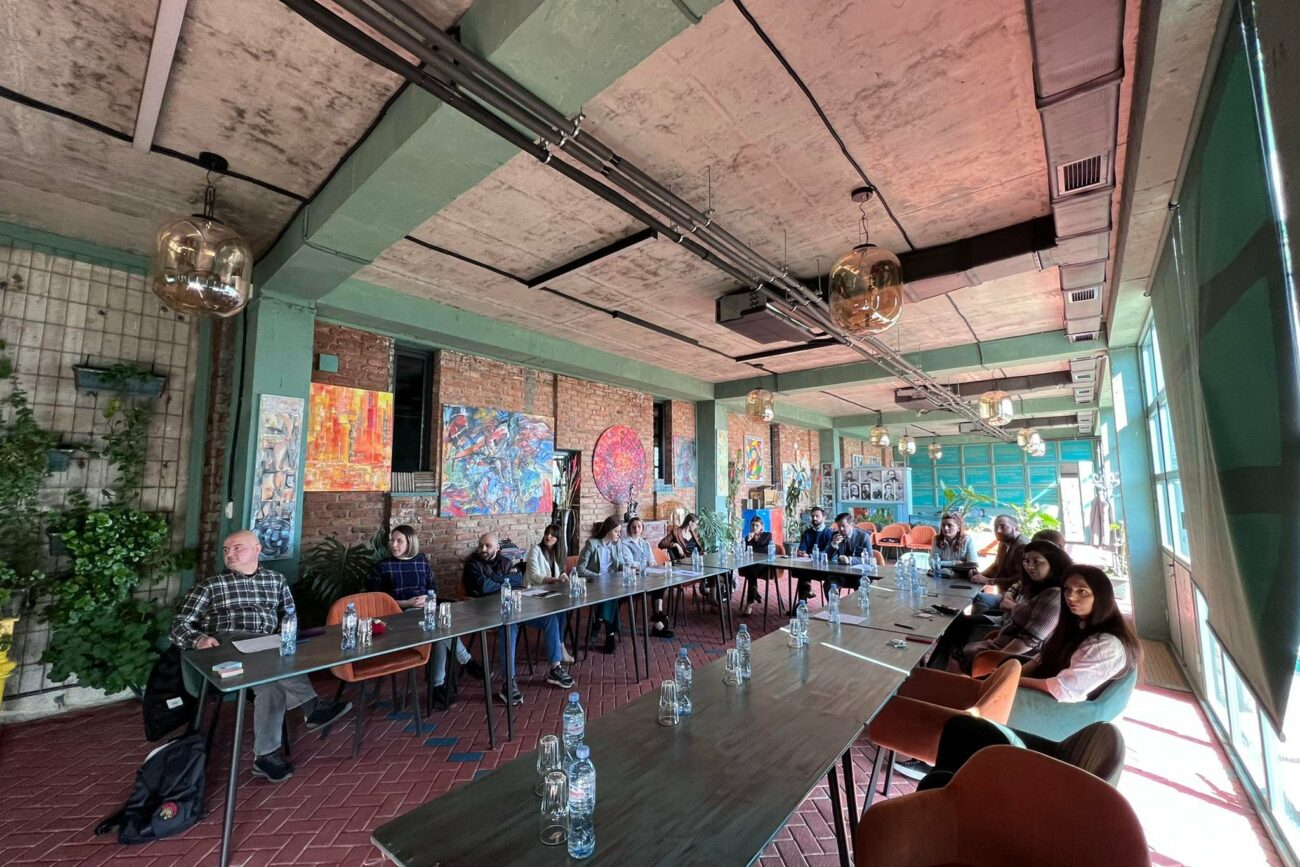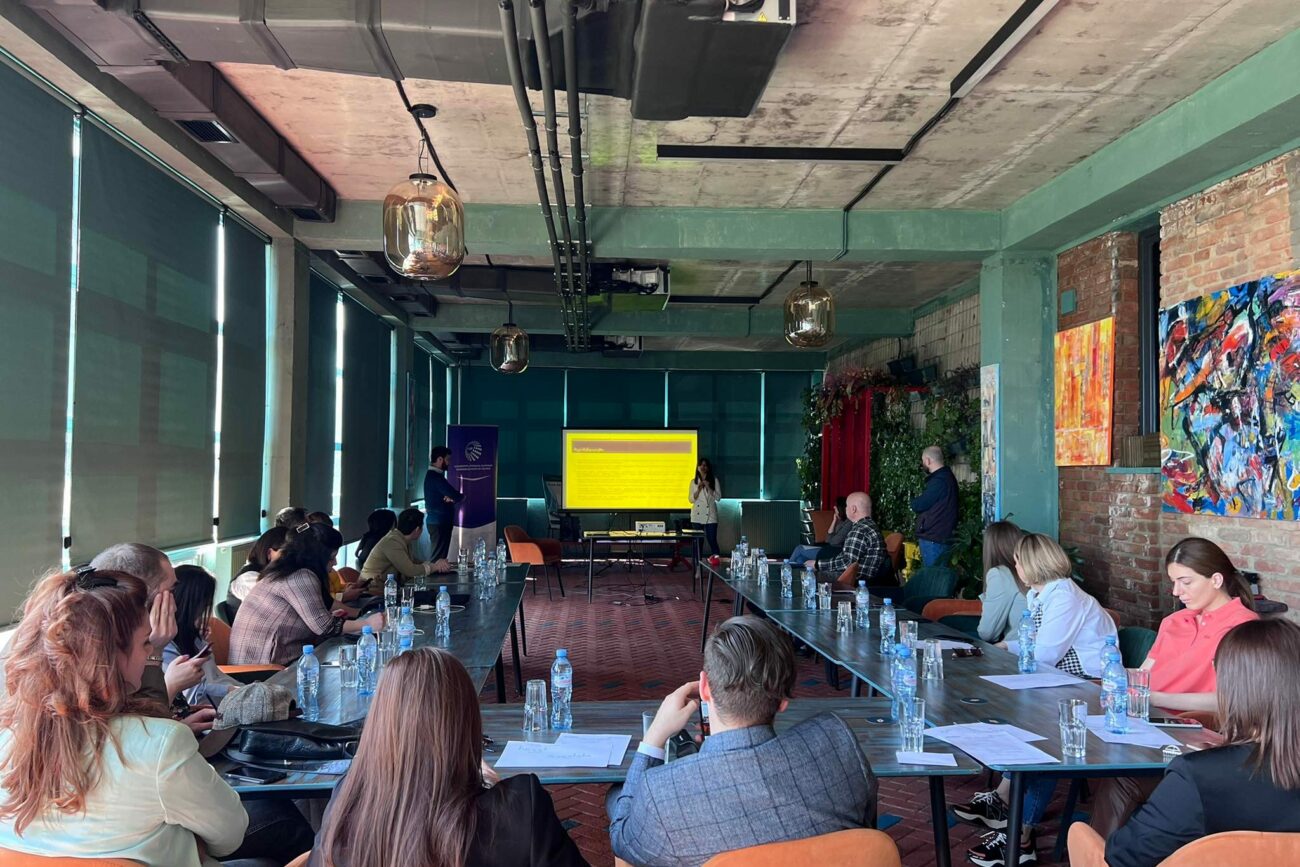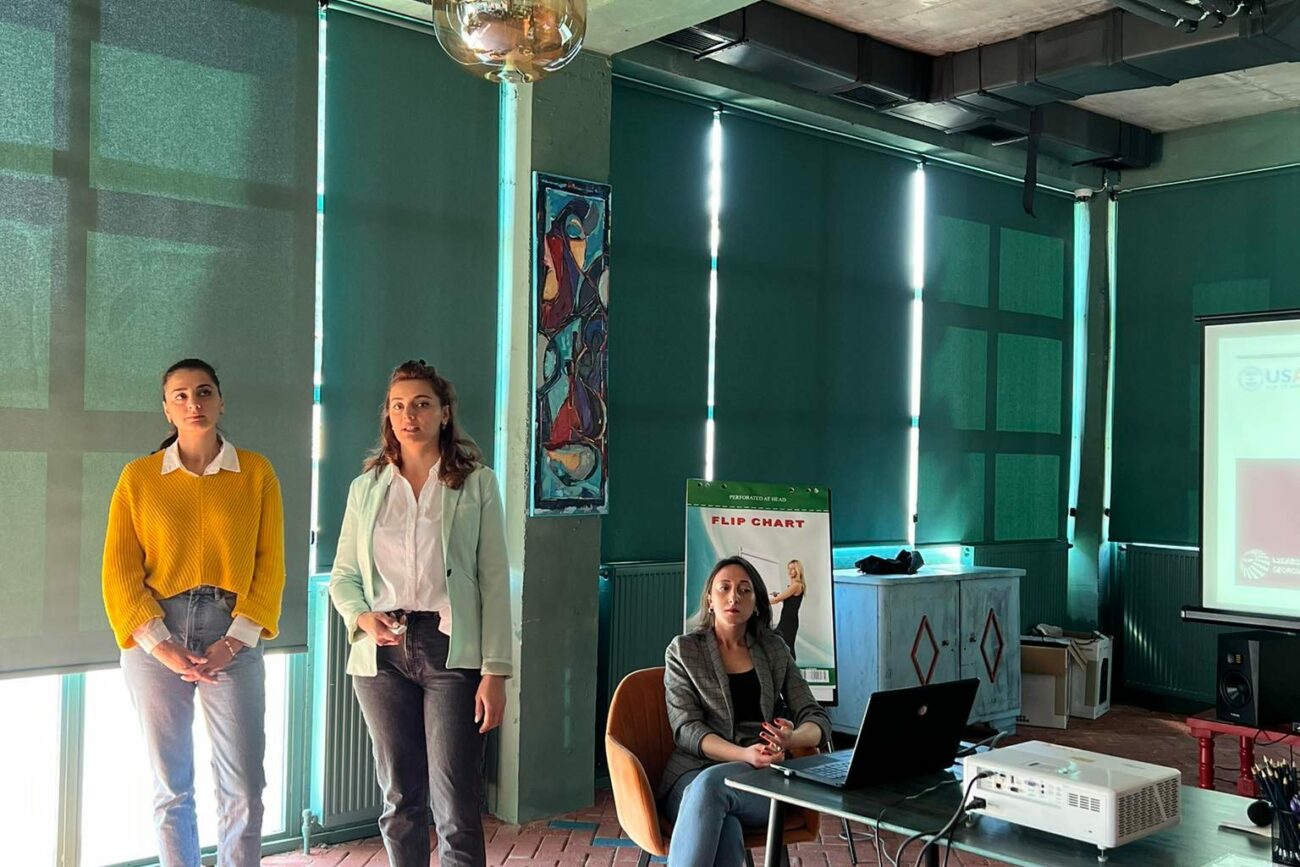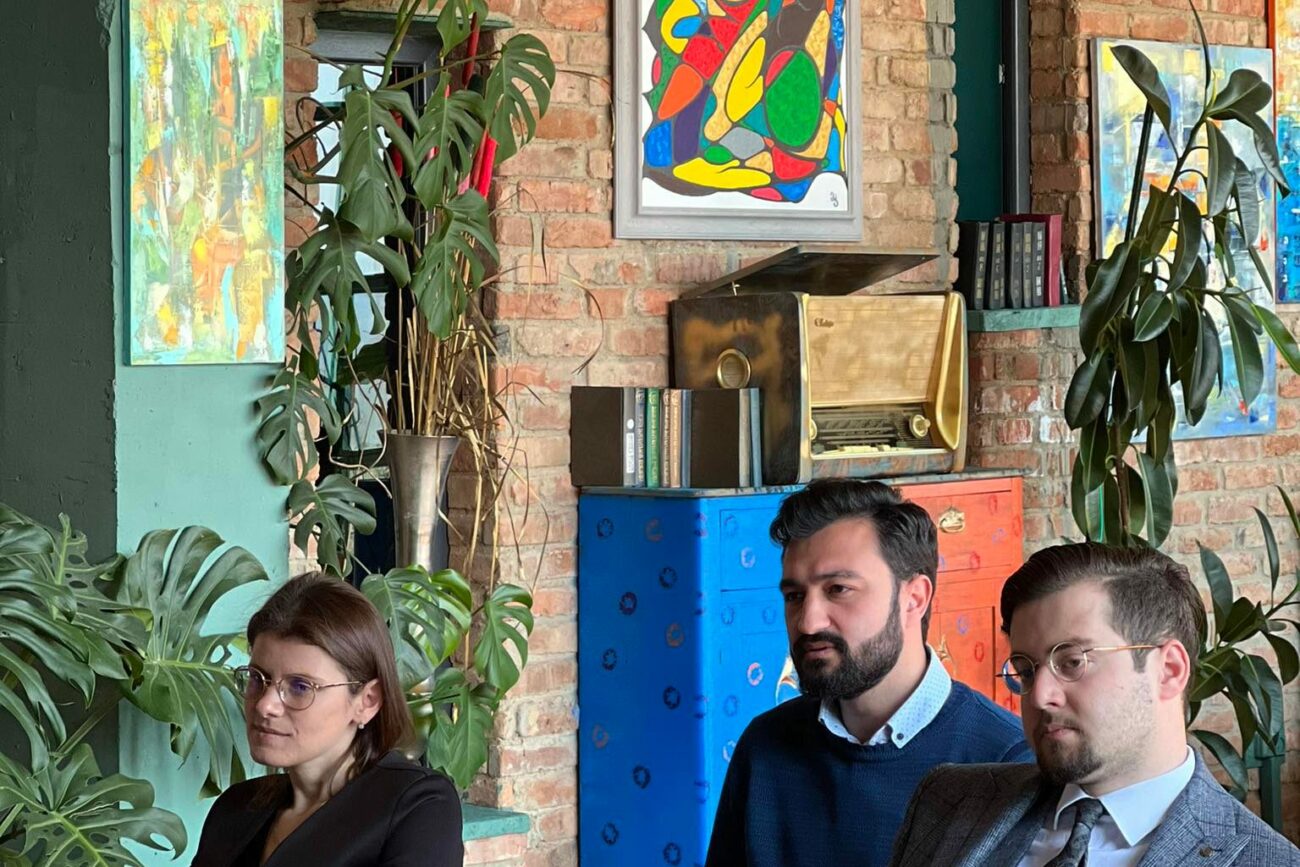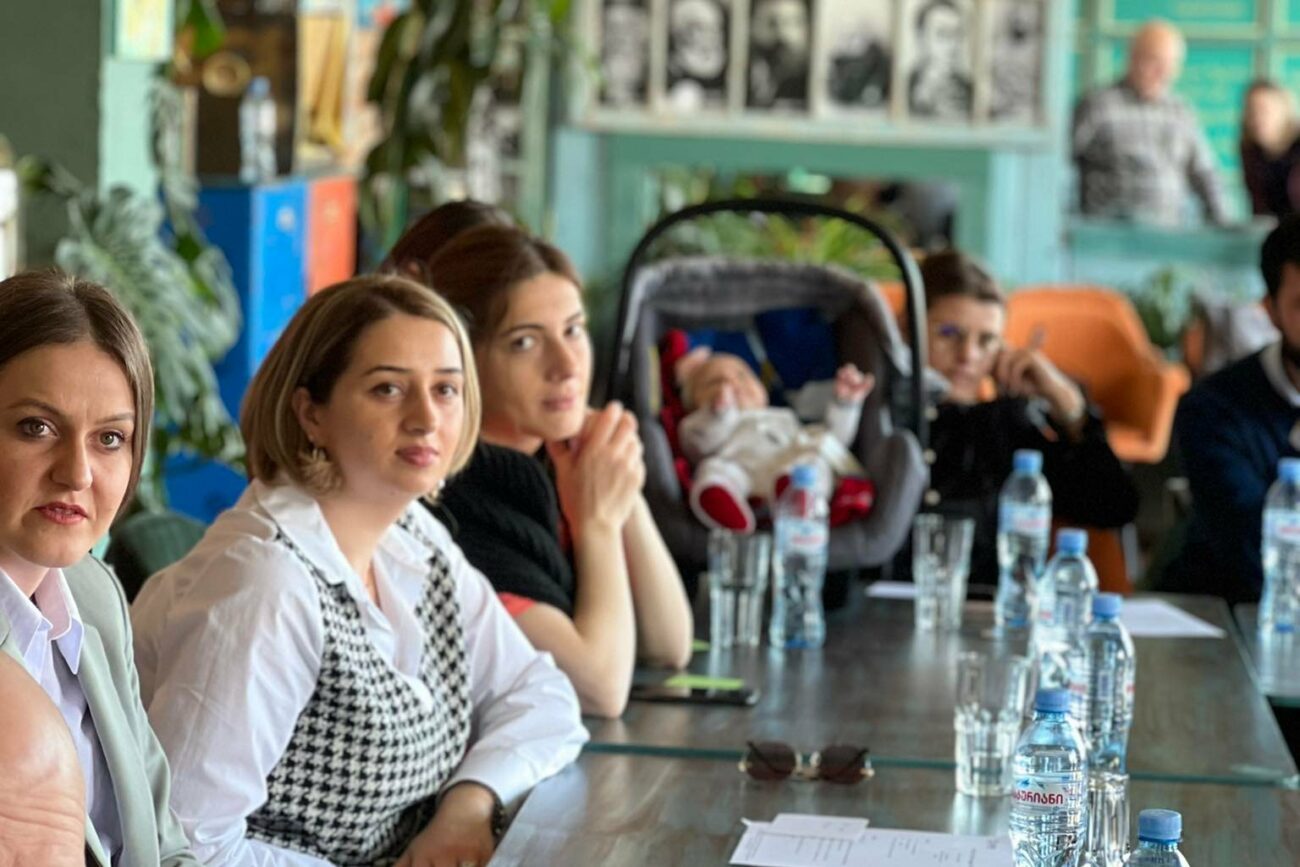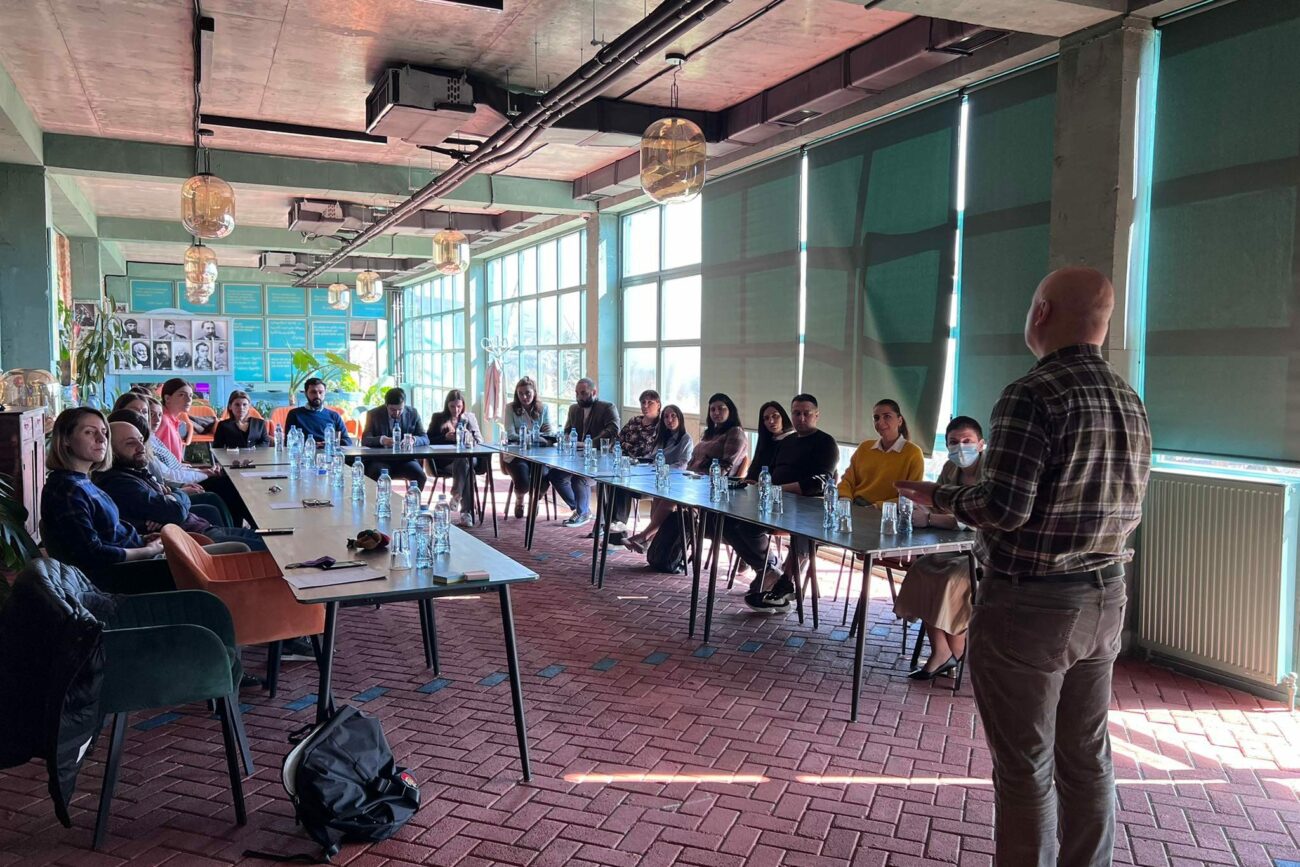On April 15-17 Georgian Institute of Politics (GIP) held the third quarterly meeting for the Working Groups (WG) that are working on policy documents in the following areas: Youth Participation in Local Self-government, Youth Unemployment, Women’s Political Participation, and the Role of Youth in Foreign Policy.
During the weekend, working group members ELS graduates – ELS Alumni presented their work and talked about challenges and the main findings of their policy areas. After the presentations, the participants had the training about communication; they got information about how to plan and implement advocacy campaigns effectively. In addition, participants with their mentors brainstormed potential activities based on their findings.
The thematic Working Groups quarterly meetings were held within the framework of the project “Promoting Youth Transformational Leaders in Georgia”. It is the second component of the “Emerging Leaders School” (ELS) initiative and involves ELS graduates from Tbilisi, Shida Kartli, Imereti, Racha-Lechkhumi Kvemo Svaneti, and Samegrelo-Zemo Svaneti.
In 2021 GIP conducted Emerging Leaders School (ELS) and trained 120 young activists, politicians, journalists, community, and civil society leaders. Following the ELS training, four thematic Working Groups have been created, which will focus on specific policy areas important for young people, such as youth participation in local self-government, youth unemployment, women’s political participation, and the role of youth in foreign policy.
The Working Groups aim to provide active youth with an opportunity to gain deeper knowledge about policies relevant to them, formulate an opinion, and advocate for change. The program will ensure that members of Working Groups are exposed to the environment of the chosen policy field, familiarize themselves with the main actors and their positions, and will be able to further personal and professional networks of their own.
The Georgian Institute of Politics is implementing the project “Promoting Youth Transformational Leaders in Georgia” with the financial support of USAID/GEORGIA.


